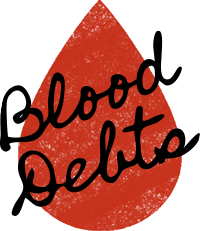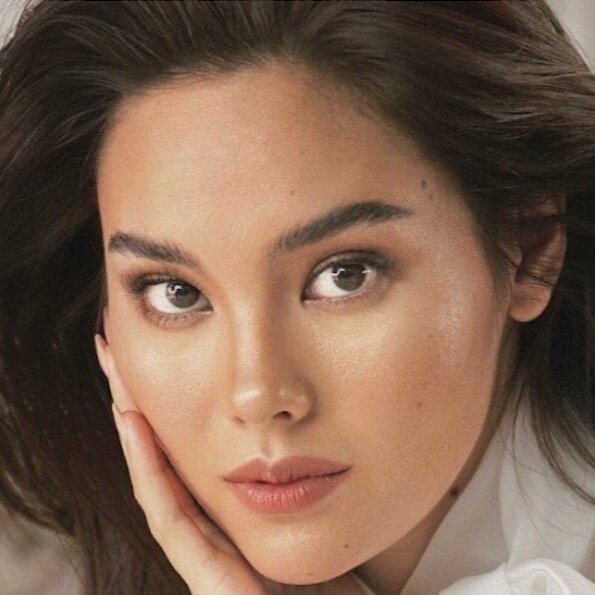Advocacy & Debt to Help
Season 1: Episode 5
Transcript
VOX POP BEGINS
Culturally, I want to say that we're almost wired to be very cognizant of a debt of gratitude.
Something we are trying to climb out of, something to get out of that.
Blood Debt sounds like a debt that's inherited just from the name that itself.
Sounds like a debt that's inherited. And it's not necessarily a debt that you entered into yourself, but it's like inherited either from a family member or by your community.
VOX POP ENDS
INTRODUCTION BEGINS
In Blood Debts, we tell the stories of choices and sacrifices to pay back what is owed and pay forward something of value.
I’m your host, Leezel Tanglao.
On this podcast, we talk about one of the few through lines in people’s lives - debt.
You’ll hear stories from the Filipino diaspora around how debt has impacted all aspects of life from those in the medical field, public service sector to creative arts.
As a journalist, I’ve spent more than a decade reporting on the financial aspects of debt in diverse communities.
But many carry debts beyond money.
The main influence of being a Filipino and coming from a Filipino family is the value of family, how close knit it is, how we always check in with each other, how it's almost like not just out of love, but also out of responsibility, the way that you see family.
In this episode, we talk to Catriona Gray, Miss Universe 2018. We discuss life growing up, her advocacies and this debt to help the community through her charity work and utang na loob.
INTRODUCTION ENDS
I'm Catriona Gray. I'm a Filipino Australian creative, singer and advocate and also Miss Universe 2018.
Growing up in Australia, I feel that I was born into a very privileged position.
I had access to schooling. I had a really beautiful childhood. I didn't really have to go through any adverse challenges or trials as a child.
So when I moved to the Philippines and I was exposed to some of the impoverished areas here, specifically, I'm seeing how the children and the families live.
I was rocked to my core.
I can't say it any other way. It's like I walked into that community, saw it with my own eyes, and it was never the same afterwards.
And that's one thing that I'm really grateful for, for being born outside of the Philippines, even though I've come to call it my home and to represent it and to embody it, is that I feel like if I hadn't had that privileged perspective when I was younger, I never would have been shocked in the way that I was and moved to help had I not been in that position to begin with.
So that's why I got involved with my advocacy.
My first charity work was centered around an educational NGO that's based in Manila and I still work with them up until this day.
It's called Young Focus, and they give access to quality education for free to the youth in the area.
Growing up
I really loved my schooling growing up and I felt like it allowed me to really figure out what I wanted to do with my life, but also equip me with the tools to make the choice.
And it really broke my heart that a lot of Filipino children just don't have that opportunity to even choose.
It's like their cards were dealt to them and then they're just forced to kind of, you know, make do with what they got.
And I think that's a grave injustice. So that's really what started me and allowing me to find my path to being an advocate, then turn my eyes to pageantry, because that's what I saw as the platform and to see how much more I could do — how much more awareness I could bring, how much market educate with a platform.
So being an advocate or finding something that I was passionate about or do something about in my community really shaped my life.
And I feel like if other people, especially young people, were to experience the same thing, that it would shape their life also in a very positive way.
When I when I first started, I started as a volunteer. I've had several successful projects with them.
The first being we fundraised to purchase and renovate an old apartment building and have since converted it into an educational center. It's called the Child Care Plus Center Young Focus.
And also, after I won Miss Universe, there was so much support received by Young Focus that their whole financial year of 2019 was covered.
The feedback I've got the most is that I think a lot of people associate Smokey Mountain with Tondo with like the garbage dumps back in the 80s and the 90s.
For many people, it was a problem of the past that couldn't possibly still be a problem now.
But I feel that in allowing my platform to kind of put a spotlight on that community, a lot of people have come to realize, like, oh, the situation still needs help. It still needs our attention.
And so I feel like in many ways that's the greatest contribution because I just felt like a lot of people just didn't know.
And when I talk to people, the general consensus, even when I was a reigning Miss Universe and I would travel to different countries is that a lot of people want to help.
They just don't know how.
And so I feel like any opportunity to bring awareness to a group or an organization or a community that's in need of help, whether it be big or small, I think is a great step forward.
Utang na Loob
Utang na loob — I didn't know what it was growing up, but I guess I kind of learned about it through experience and it was not really a value that was practiced in my family and my parents growing up.
But I did start to see it in my extended family and also just in my friends and the people around me.
As you said earlier, it can sometimes have a negative connotation even though the direct translation is like — a debt of gratitude, which sounds very nice.
But I came to know it initially as the negative connotation, mostly because when you think of giving, I feel like the giving that we should all aim for is one that is given without expecting anything in return, or it's not to gain anything because then it's like giving with a motive.
But I feel like that is the main foundation of the negative connotation of utang na loob is that there’s an expectation that if ever you're in need, that person owes you.
And I understand needing to rely on someone in this season. I hope that when I'm going through that season, you'll also lend a hand.
But in that kind of sense, I feel like it's not something that you would push or hold against them if they don't.
I feel like in our culture, with a kind of comes that responsibility that's kind of held over people's heads.
But I feel like we should all because I think it comes from a nice place.
It comes from a place of wanting to help out your neighbor, your friend, your family.
But I feel like to allow it to be that positive connotation and we need to aim for giving without expecting something in return. It should be giving for the sake of giving.
LEEZEL TANGLAO: Especially in these uncertain times. Catriona points to the work of our front liners as a debt of gratitude.
First off, I would start by saying thank you so much to be in a position of service, just to serve as just your family, your community, your country, I think is a very honorable one.
And I hope that we'll never forget the service that all of our Filipino front liners are giving for us, for our nation, for their communities.
I hope that they will always be held up as inspirations, even after all of this solves itself.
I hope that we never forget, and I hope they're also held up in the community as something that younger generations should aspire to be like.
Those are the values that we should aspire to have.
Just continue to pray, continue to stay strong with your family, find your strength, whether that be in God or in your calling or in your sense of duty.
I, for one, really just am so grateful, so, so grateful, and I and I hope that I speak for the whole community and the whole nation when I say that we wouldn't have gone through this without you.
OUTRO BEGINS
There are many sides to debt.
This series intends to take you on a journey through defining and redefining debt through stories of Filipinos in the diaspora.
Upcoming stories from guests like Major General Antonio Taguba and rapper Ruby Ibarra are just a sampling of the journeys you’ll hear along the way.
That’s all for this episode, thank you for listening.
To find out more about the series and upcoming episodes and resources, visit Blooddebt.com
Follow us on Facebook, Twitter and Instagram.
Blood Debts is produced and hosted by me Leezel Tanglao.
This series is a legacy project of the Filipino Young Leaders Program.
Shoutout to FYLPRO Batch 8.
This series is dedicated to all those who struggle to talk about uncomfortable issues and for all those who ever felt overlooked.
I see you.
I hear you.
OUTRO ENDS

